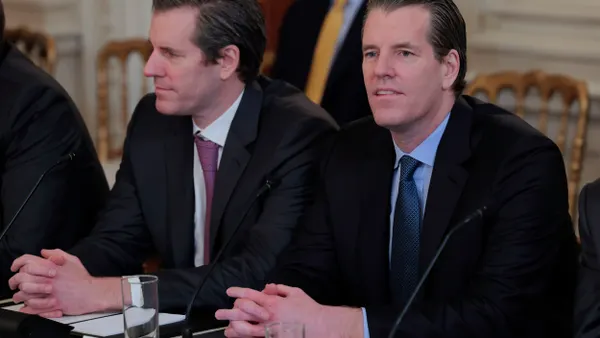Paxos Trust Co. will pay $26.5 million to New York’s Department of Financial Services for due diligence failures related to its relationship with former partner Binance and systemic failures in Paxos’ anti-money laundering program, the regulator said Thursday.
Paxos must also invest an additional $22 million in its compliance program, according to its agreement with DFS.
“The Department of Financial Services has led the nation in regulating the virtual currency industry, protecting consumers and markets through examinations, supervision, and where necessary, enforcement,” Superintendent Adrienne Harris said in a prepared statement.
The settlement resolves a case that began in 2023, when DFS ordered Paxos to stop issuing new Binance USD stablecoins.
Paxos’ BUSD distribution partnership with Binance began in 2019, four years after Paxos was authorized by the DFS to engage in virtual currency business. Paxos was required by DFS to conduct due diligence on Binance.
However, the stablecoin issuer did not have proper controls in place, and it failed to address red flags and illicit activity, DFS said. Users in the U.S. could access an unregulated exchange through Binance’s “lax geofencing,” the regulator said. Between 2017 and 2022, $1.6 billion in illicit funds flowed through Binance. Some of those transactions were to or from entities sanctioned by the U.S. Office of Foreign Assets Control, DFS said.
A Paxos spokesperson told Banking Dive via email that the compliance issues at hand were identified over two and a half years ago and have since been fully remediated. The matters had no impact on customer accounts, the spokesperson said, and there was no customer harm.
“Paxos was founded on a deep belief in adherence to regulation and compliance and we have invested significant resources in building a best-in-class compliance operation,” the spokesperson said.
The spokesperson noted that following DFS’s order for the wind-down of BUSD, Paxos did so without ever de-pegging the stablecoin from the dollar, which was “a testament to the strength of Paxos’ treasury management,” a
“There are no new claims regarding Paxos’ relationship with Binance or the issuance of BUSD, and Paxos’ other white-labeled stablecoins operate on similar models with different partners and have not faced any regulatory issues,” the spokesperson said.
A DFS investigstion found that Paxos’ compliance issues reached beyond those tied to BUSD.
Despite DFS guidance in 2022, which highlighted virtual currency businesses’ need to fix issues with know-your-customer controls, Paxos “onboarded customers with limited insight into their true identities, the legitimacy of their businesses, or the sources of their funds,” DFS wrote.
“As a result, customers who shared certain behavioral characteristics indicative of coordinated activity were able to open multiple accounts with Paxos,” the agency wrote. “This program weakness was exacerbated by Paxos’s lack of standardized investigation guidelines.”
Additionally, although Paxos had written BSA/AML policies and procedures, they didn’t address some trade-based AML risks, and Paxos didn’t train its compliance personnel to identify those risks.
“These failures created an environment vulnerable to exploitation by criminal actors,” DFS wrote.
“Regulated entities must maintain appropriate risk management frameworks that correspond to their business risks, which includes relationships with business partners and third-party vendors,” Harris said in her statement. “The Department continues taking significant steps to ensure accountability, in turn protecting consumers and safeguarding the integrity of the financial system.”











